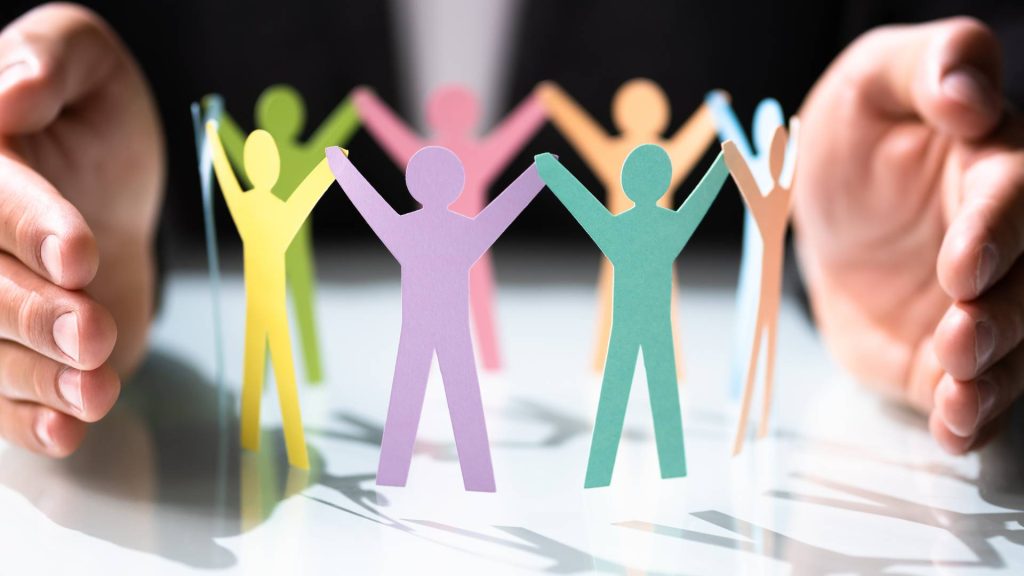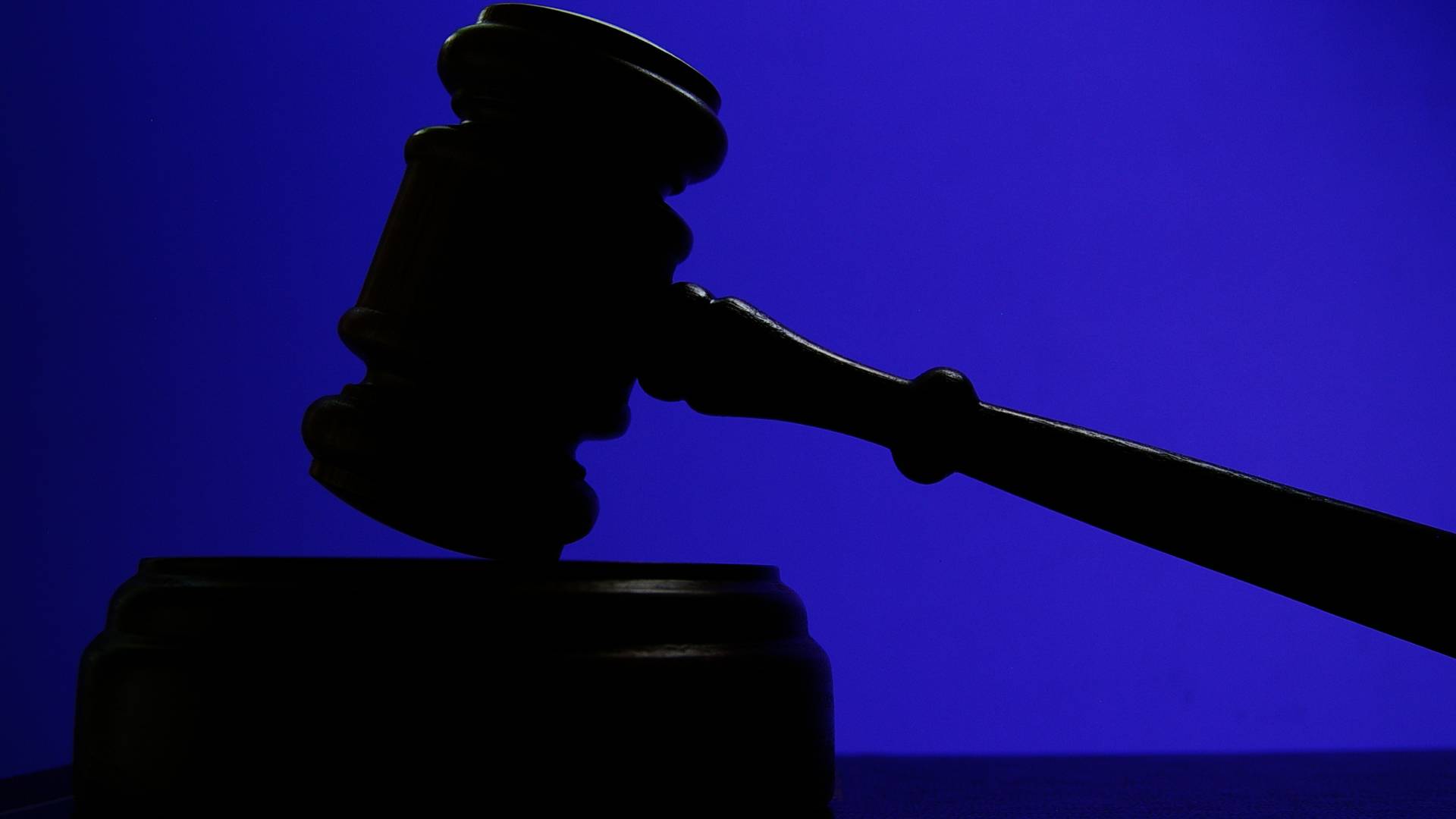Do you ever catch yourself judging people? Their looks, appearance, how they carry themselves. The way they sound, speak, or move. Perhaps you get intrusive, fleeting thoughts, or feelings that linger for much longer.
Well, you’re not the only one that does this.
Pretty much all humans do, but why? In this post I’ll explain the reasons you judge others and how to stop. But as you read through, you’ll see how judging others doesn’t always come from a bad place. It’s deeply rooted within our nature.
Keep reading to find out more.
It’s How You Evolved
If you see a tall, hooded man approaching you on a quiet street at night-time, your first thought might be “he looks dodgy, cross the street”. And well, to be honest, you probably should. You made a snap judgement, yes, but for good reason.
As a species we evolved to detect potential threats or allies.
This was -and still is- paramount for our survival. Those split-second judgements allowed our ancestors to stay safe. It meant they could make the correct decisions about who to avoid, or who to trust and cooperate with.
Previous trauma could also trigger how you judge others.
Let’s say you were hurt, bullied, or attacked by somebody with certain facial characteristics. The next time you see a person who looks similar -even if it’s years later- you’ll automatically detect a threat. People can suppress traumatic events, so you may not even know where these judgements come from.
That survival instinct is deeply inbuilt and remains with you today. It’s there to keep you safe and free from harm. So, don’t judge it. Be grateful it’s still there, it may save your life one day.
Your Ego Wants to Feel Superior
We all have an ego. Some of us have bigger ones than others. I’m sure you’ve met at least a few arrogant and egotistical people in your lifetime. They’re often unpleasant people to be around.
The thing is our egos tend to fluctuate. This often depends on how you’re feeling or what you’re doing at the time. For example, unemployment, poverty, and stagnation reduce confidence. Yet, success, luxury, and flashy possessions can boost your ego.
It’s not uncommon to judge others so that you feel better about yourself. I’ve caught myself doing this before. Have you?
When I began meditating and started to regulate my own emotions better, I unconsciously judged others who couldn’t. Not exactly a great attitude to have. My ego got the better of me, but I recognised it quickly, enabling me to have a more compassionate approach.
Be curious about the next time a judgement arises. Is it because your ego wants to feel superior?
“All you need to know and observe in yourself is this: Whenever you feel superior or inferior to anyone, that’s the ego in you.”
— Eckhart Tolle
You Judge to Fit In
We all want to belong and fit in. This also goes back to our evolutionary past because we had to work together to survive. The alternative was to fend for ourselves, which wasn’t ideal. Although surviving in the wild is no longer our primary concern, exclusion still carries consequences.
We have emotional and social needs that need to be fulfilled.
This is why people will do anything to fit in. If your friends, work colleagues, or family are judging others, you may conform. These opinions and views may even have been ingrained in you since early childhood.
This can shape your perceptions, attitudes, behaviours, beliefs, and values, but not always in a positive way. Think of religious conflicts, violence between sport’s fans, and racism, to name a few. Quite often these ideals are deeply rooted from an early age.
Learn to challenge your biases. Question what stereotypes, prejudices, and assumptions you hold about groups of people. Work to dismantle them and be more open-minded towards others. If your social circles are having a toxic influence on you, work on finding new ones.
It’s Actually About You
Imagine this. You used to be obese, unhealthy, and lazy. But overtime, you transformed yourself through weight loss, exercise, and self-discipline. Now whenever you see an overweight person, you feel disgusted.
Not only do you instantly judge them, but you can’t take your eyes off them.
Where is the judgement really coming from? Most likely you’re disgusted at yourself, not them. To be more specific, you’re repulsed at how you used to be. It’s also probable that you fear becoming like that again, which will only add to your feeling.
See where I’m going with this?
We often project how we feel about ourselves onto other people.
This could be due to our insecurities too. For example, you may judge someone for being too tall because you wish you were taller. Or you may dislike somebody who flaunts their “perfect” body because you don’t like your own.
When you find yourself judging someone, pause. Ask yourself “is this about them or me?”. It’s also useful to practice compassion and empathy towards others, you never know what they’re going through. Try giving them a compliment, even if it’s in your own head.
Working on your own insecurities will also help you prevent these judgements from arising in the first place.
“When you judge others, you do not define them, you define yourself.”
— Earl Nightingale
Judging Helps You to Find Your Place
The universe is a mysterious and complex place. Most people want to discover purpose, seek meaning, find their place, and gain self-understanding. From a young age you make sense of the world by analysing, comparing, and forming opinions.
During this process you identify what you like and dislike.
Think about who you look up to. When you admire somebody’s worth ethic, appearance, or demeaner, you’ll aspire to be like them. If somebody acts or behaves the opposite to your idol or role model, you’ll probably judge them. Reinforcing the kind of person you want to avoid becoming.
In this sense, judging others can be useful, providing you do it in a constructive way. It helps you to distinguish what kind of a person you want to be or what you want to strive towards. Just be mindful that you don’t linger on the negativity.
Remember everyone acts and behaves in certain ways for a reason, they may have had a less fortunate life than yourself.
We Live in a World of Comparison
Social media has magnified our comparisons to others. Some people share their whole lives online. Meaning we get insight about their success, possessions, appearance, style, and behaviour. Excessively comparing your life to others can leave you feeling inadequate and lacking.
This has become a habit for many. One which can impact your mental health, which is sadly happening to many of today’s youth.
There are two things to consider here:
- There will always be someone wealthier, better looking, and more successful than you.
It’s a waste of time seeking unattainable standards. Instead, focus on personal growth. How? Only compare yourself with who you were yesterday. Striving to be better than your past self is a much healthier way to live.
- Those on social media often present unrealistic portrayals of their appearance and lives.
Filters, camera angles, the correct lighting can all alter someone’s appearance. On top of that, most people only post the best aspects of their lives.Travelling, social gatherings, delicious lunches, etc. Many never post about their bad days, struggles, or insecurities. It’s easy to forget but remember they’re only human, just like you.
You should stop or at least limit your social media usage. Cultivating gratitude also helps you to stop making unhelpful comparisons. As it shifts your focus from what you lack, to all the positive things that you do have.
“Compare yourself to who you were yesterday, not to who someone else is today.”
— Jordan B. Peterson
Take Steps to Reduce Unnecessary Judgment

In conclusion, judging others is a common tendency. One that’s deeply rooted in our evolution. It’s how you assess danger, conform to social needs, and find your place in the world. It’s also driven by your own insecurities, ego, and the values you were raised with.
So, forgive yourself. Judging people doesn’t mean you’re a bad person, nor does it come from a place of malice. However, it’s important to understand and recognise the negative effects of excessive judgement. Otherwise, it can impact your own well-being, relationships, and view of the world.
Remember to pause the next time you make judgements and ask what it’s really about. Challenge your biases and embrace an open-minded approach to people. Practice empathy, compassion, and give complements.
By being mindful of your judgements, and fostering a more inclusive mindset, you can help to build a better society. One that’s more understanding, kind, and accepting.
Finally, understand that social media often presents distorted realities that are unattainable. Seeking these standards will only leave you feeling inadequate. Instead, strive for personal growth by comparing yourself to who you were yesterday.
I’m curious to know, what are the main reasons you judge others? Let me know in the comments.
Take care of yourselves,
Chris from Mindful Way to Be

